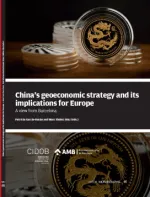The European Commission’s proposed anti-coercion instrument from an international law perspective

In a global context characterised by rising geopolitical and economic tensions, the European Union (EU) is equipping itself with new tools to ensure its open strategic autonomy and promote fairer and more sustainable international trade. In principle, it wants the rules of the World Trade Organization (WTO) to be reformed and updated. But repeated failures to reach significant global consensus, particularly with China and other emerging economies, is leading the EU to opt to negotiate regional trade agreements and to endow itself with new autonomous legal instruments. Examples include a general sanctions regime for human rights violations, a corporate sustainability due diligence directive, a regulation on foreign subsidies that distort the internal market, a regulation on international public procurement, a carbon border adjustment mechanism, and a new initiative to combat deforestation (Erixon et al., 2022). Far from pursuing discriminatory, protectionist unilateralism, these instruments seek to project essential values and contribute to designing a new regulatory framework for international trade.